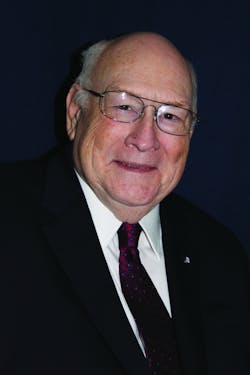Eastern Tennessee’s Tri-Cities Regional Airport (TRI) is considering a change from a commission-operated airport to an airport authority system. Airport director Patrick Wilson filled me in during an interview.
TRI is owned by four cities and two counties in two states. The four cities are Bristol, Kingsport, Johnson City in Tennessee, and Bristol, Virginia, plus Washington and Sullivan Counties in Tennessee. The owners select members of the airport commission and the commission operates the airport.
This arrangement — with some changes — has worked well since the mid-1930s, and the airport has been financially self-sufficient, with no local taxpayer funding, since 1966. TRI is currently served by four airlines handling some 103,000 pax per year, plus a sizable fixed base operation and a flight school.
It’s kinda hard to argue with a record like that.
Still, the commission began to study the idea of switching from an airport commission to an airport authority in the early 2000s, particularly after 9/11, as did many airports across the country. TRI and other airports owned by several entities and operated by a commission face many questions about liability. A major airport disaster at TRI could result in lawsuits aimed at the coffers of the individual cities and counties. Although TRI maintains a humongous liability policy with the owners listed as insureds, who knows how much liability is enough to cover a major disaster in this day and age? Turning over airport ownership and operations to an airport authority could provide a buffer, just as business owners are provided a buffer by incorporation. Also, there is the possibility — remote as it seems for TRI — that the airport could lose money, leaving the owners holding the bag. An airport authority could reduce that exposure.
An airport authority could provide a more nimble operation. An authority can issue bonds, if needed, and move more quickly/efficiently in many areas. For one example, some federal grants can be obtained only if the airport can act quickly. It can certainly be argued that a more efficient operation can serve the public better.
One hard to accept fact is that current owners would have to cede ownership of the airport to the authority. The airport is a valuable property. On the other hand, that value exists only if the property can be sold. Over the decades much development was funded by the federal guvmint, which would want that money back immediately if the property was sold, say, to a shopping center developer. The arrangement being studied would give current owners the right to select authority members just as they select the current commissioners.
This is far from being a done deal. Wilson says frankly that he is by no means certain that the change will indeed take place. This is an ongoing study with an as yet unknown conclusion. On the one hand are new opportunities. On the other hand is the quite logical question, if it ain’t broke, why fix it?

